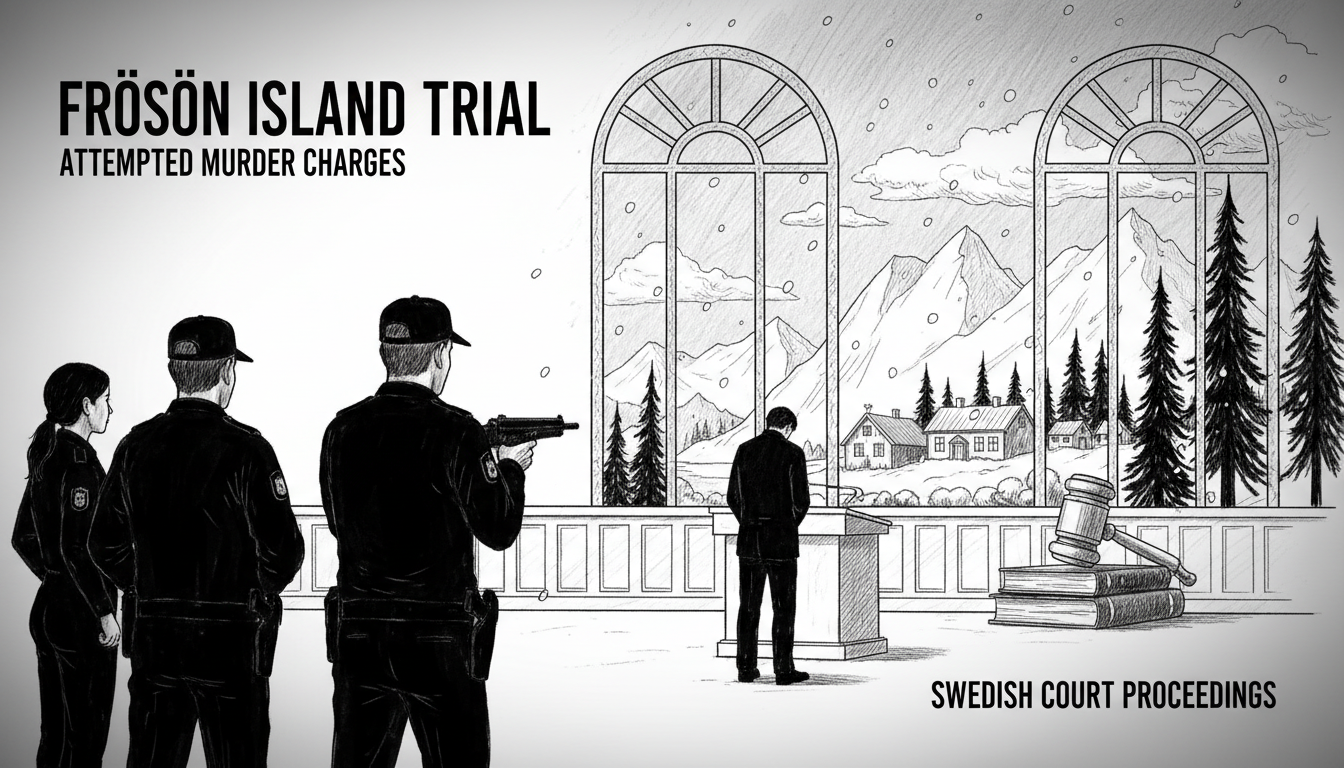A 32-year-old man admits he fired a shot at police officers inside his apartment on Frösön Island. The prosecution claims he intended to kill, while the defense argues his actions lacked lethal intent. The trial centers on determining the shooter's true motivations during the confrontation.
Defense attorney Emma Cutting stated the case will largely focus on her client's intentions. She said in a statement that the shooting did not aim to cause fatal harm. The trial is expected to last three days in the Swedish district court.
All five plaintiffs are police officers who responded to the man's address after he threatened to engage in an armed duel. The prosecution has charged the defendant with five counts of attempted murder. They seek 200,000 Swedish kronor in damages for each officer involved in the incident.
Among the technical evidence presented is a threatening note found in the man's residence. The message contained violent language directed at law enforcement. The defense attorney has addressed this evidence in court proceedings.
This case highlights Sweden's strict approach to crimes against police officers. The country maintains strong legal protections for law enforcement personnel. Swedish courts typically impose severe penalties for violent acts against police.
The incident occurred on Frösön Island in Jämtland County, a region known for its low crime rates. Local residents have expressed surprise at the violent nature of the event. Such confrontations remain rare in this part of northern Sweden.
Legal experts note that intent plays a crucial role in Swedish murder cases. The distinction between attempted murder and aggravated assault carries significant sentencing differences. Swedish law requires prosecutors to prove specific intent for murder convictions.
The case reflects broader discussions about police safety in Sweden. Recent years have seen increased attention on officer protection during emergency responses. This trial may influence future police procedures for handling threats against law enforcement.
Sweden's judicial system typically moves efficiently with such cases. The three-day timeframe suggests both sides have prepared substantial evidence. Court observers expect a verdict shortly after the trial concludes.
The outcome could set important precedents for similar cases across Nordic countries. Sweden's legal decisions often influence neighboring nations' judicial approaches to police protection cases.

